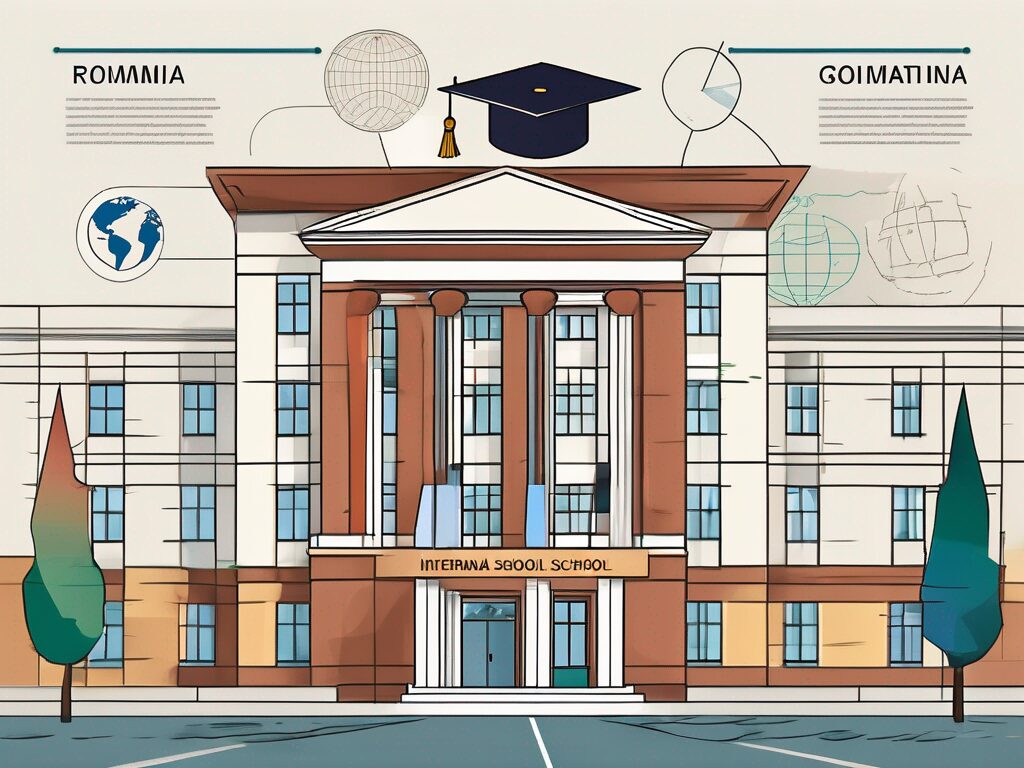Key Qualifications for Educators in International Schools in Romania
Initiating a career in international education presents a unique opportunity for professional growth and cultural exchange. Romania, characterized by its historical richness, dynamic culture, and a progressively evolving educational landscape, has emerged as a sought-after location for educators globally. However, securing a teaching role in an international school in Romania necessitates specific qualifications and competencies. This guide outlines the fundamental qualifications required for teaching in Romania’s international schools.
Academic Credentials
To begin with, academic credentials are paramount. International schools in Romania typically mandate that educators possess a minimum of a Bachelor’s degree in Education or a closely related discipline. This requirement aligns with global standards, similar to those observed in the UK, where a degree is the foundational qualification for teaching professionals.
In certain instances, particularly for advanced teaching roles or specialized subjects, a Master’s degree may be required. This mirrors practices in the United States, where a Master’s degree is often preferred for teaching positions.
Furthermore, for educators intending to teach specific subjects such as Mathematics or Science, possessing a degree in the relevant field can significantly enhance employability. This is akin to the Australian context, where subject-specific qualifications are highly regarded.
Teaching Certifications
In addition to academic degrees, obtaining a teaching certification is a critical requirement. In Romania, as in many European nations, certifications such as a Postgraduate Certificate in Education (PGCE) or a Teaching English as a Foreign Language (TEFL) certification are esteemed qualifications.
These certifications validate that educators have completed professional training necessary for effective classroom management and instruction. They serve as a testament to the educator’s capability to facilitate student learning effectively.
Professional Experience
Professional experience is another critical criterion that international schools in Romania evaluate when considering candidates. Most institutions prefer applicants with a minimum of two years of teaching experience, reflecting a standard similar to that of international schools in Canada and New Zealand.
However, newly qualified teachers should not be discouraged, as some schools are open to hiring recent graduates who demonstrate strong potential and enthusiasm for teaching. This practice is comparable to the approach taken in Singapore, where fresh graduates are often given opportunities to establish their teaching careers.
Additionally, international teaching experience can be a significant asset. Schools frequently favor candidates with diverse cultural teaching backgrounds, as they are likely to adapt more readily to the multicultural environment of international schools. This is similar to trends observed in multinational corporations, where international experience is highly valued.
Language Proficiency
Given that English is the primary medium of instruction in most international schools in Romania, proficiency in English is essential. This requirement is consistent with international schools in non-English speaking countries, where English language skills are critical.
Moreover, proficiency in additional languages, particularly Romanian, can provide a competitive edge. This capability facilitates effective communication with students, parents, and local staff, paralleling the preference for multilingual employees in global organizations.
Essential Skills and Attributes
Beyond academic qualifications and experience, certain skills and attributes enhance a candidate’s appeal for teaching positions in international schools in Romania. These include effective communication skills, cultural awareness, adaptability, and a genuine passion for education. These competencies are universally valued in the teaching profession.
- Effective Communication: Essential for fostering relationships with students, parents, and colleagues, effective communication is a cornerstone of successful teaching.
- Cultural Awareness: In an international school context, understanding and respecting diverse cultural backgrounds is crucial.
- Adaptability: The ability to adjust to new environments, curricula, and educational practices is vital for success in international settings.
- Passion for Education: A deep commitment to teaching and learning distinguishes exceptional educators from their peers.
Conclusion
In summary, pursuing a teaching career in international schools in Romania necessitates a combination of academic qualifications, professional experience, language proficiency, and essential skills. While specific requirements may vary across institutions, a Bachelor’s degree, teaching certification, relevant experience, English proficiency, and key personal attributes are generally indispensable.
For educators contemplating a teaching career in Romania, it is imperative to focus on acquiring these qualifications and competencies. Remember, teaching transcends mere qualifications; it is fundamentally about dedication and a commitment to fostering student growth. Equip yourself with the necessary credentials while nurturing your passion for education. Best of luck in your professional journey!
Advance Your International Teaching Career with IPGCE
Are you prepared to navigate the complexities of international teaching and unlock new career pathways? Enroll in the UK’s premier Teacher Training Course, the International Postgraduate Certificate in Education (iPGCE), and acquire the qualifications that will not only fulfill the rigorous standards of international schools but also propel your career forward. With IPGCE, you will join a global network of educators, deepen your understanding of international education systems, and enjoy the flexibility to balance professional development with your current commitments. Do not miss out on this opportunity; be the catalyst for change in your professional journey. Join IPGCE today and start making a significant impact in your teaching career and beyond.

